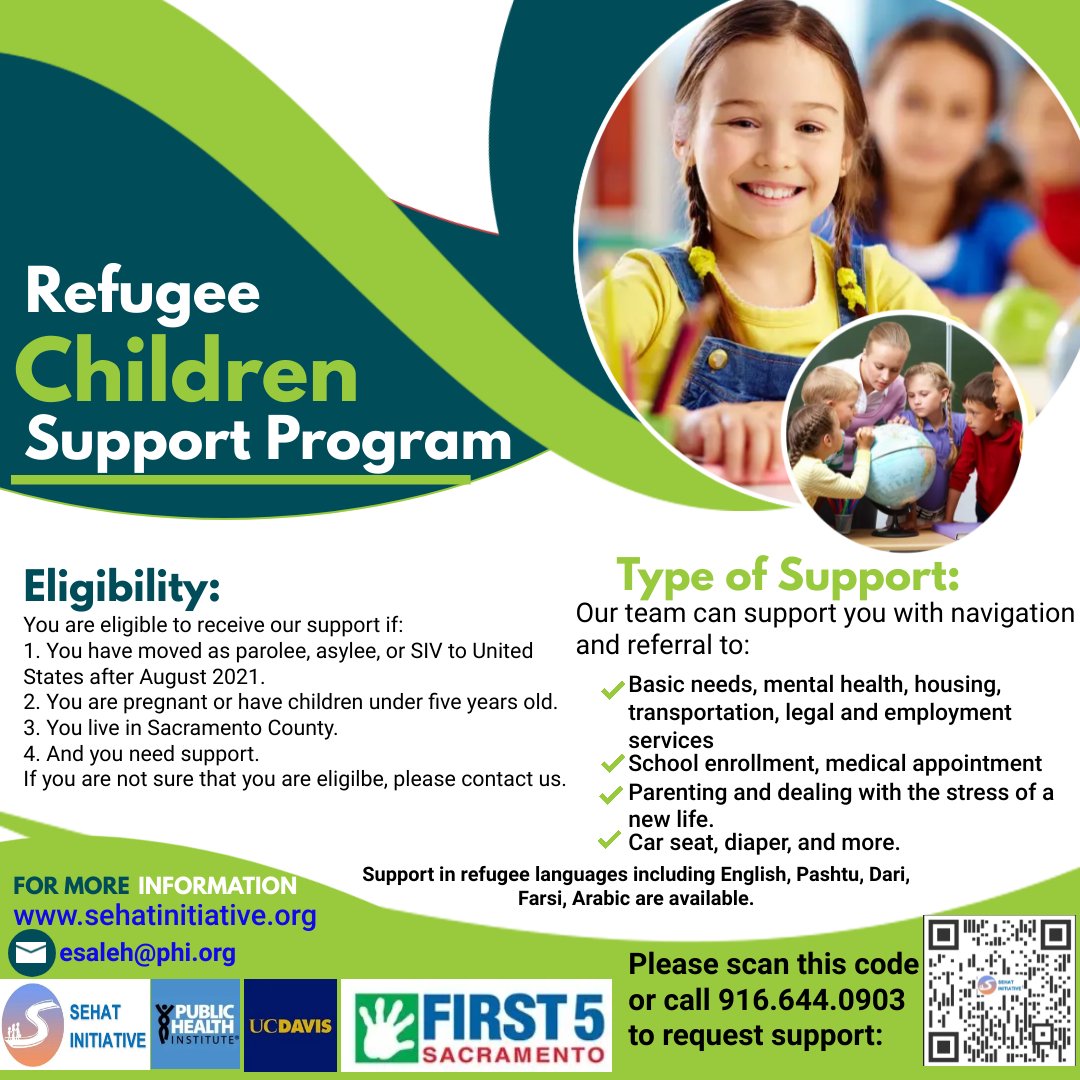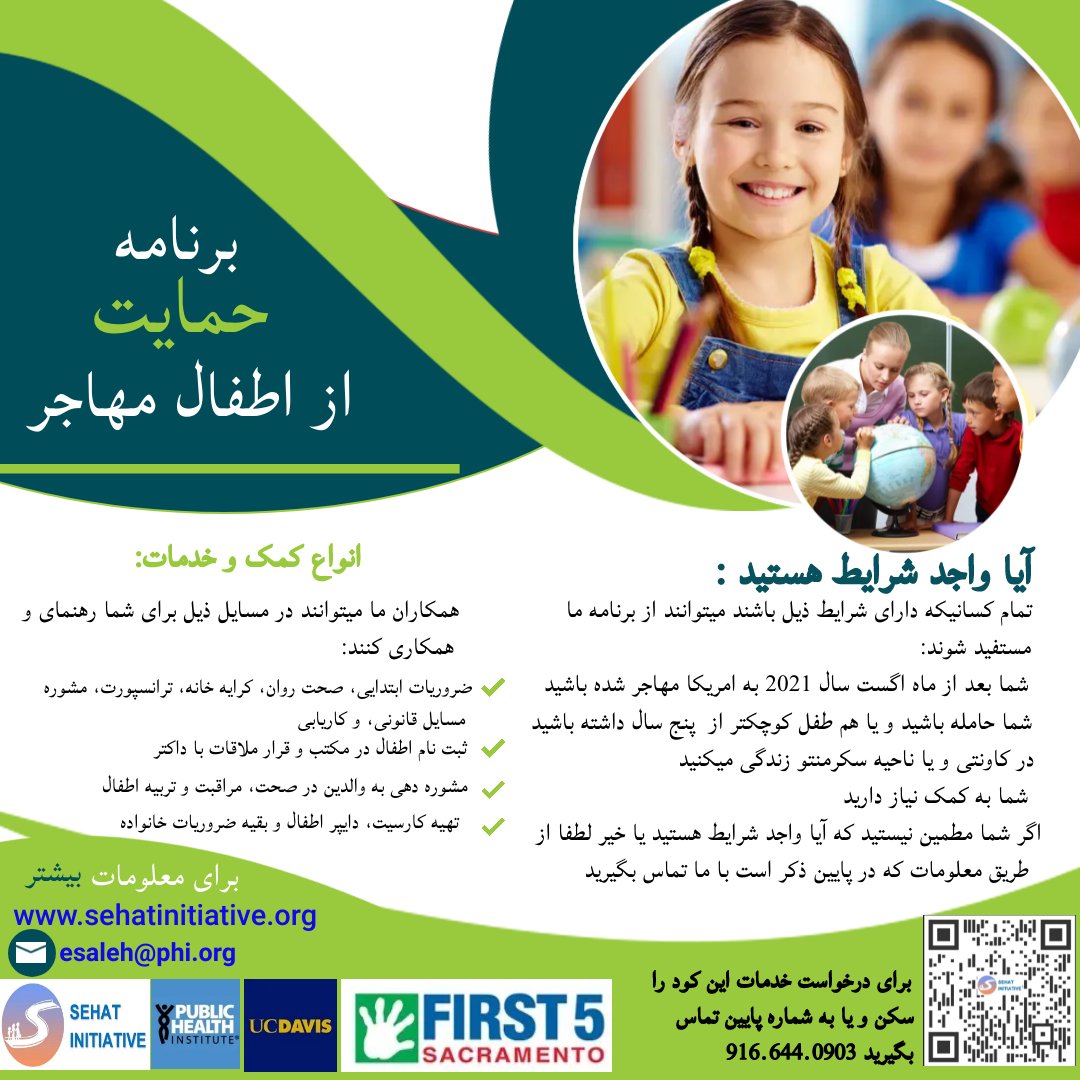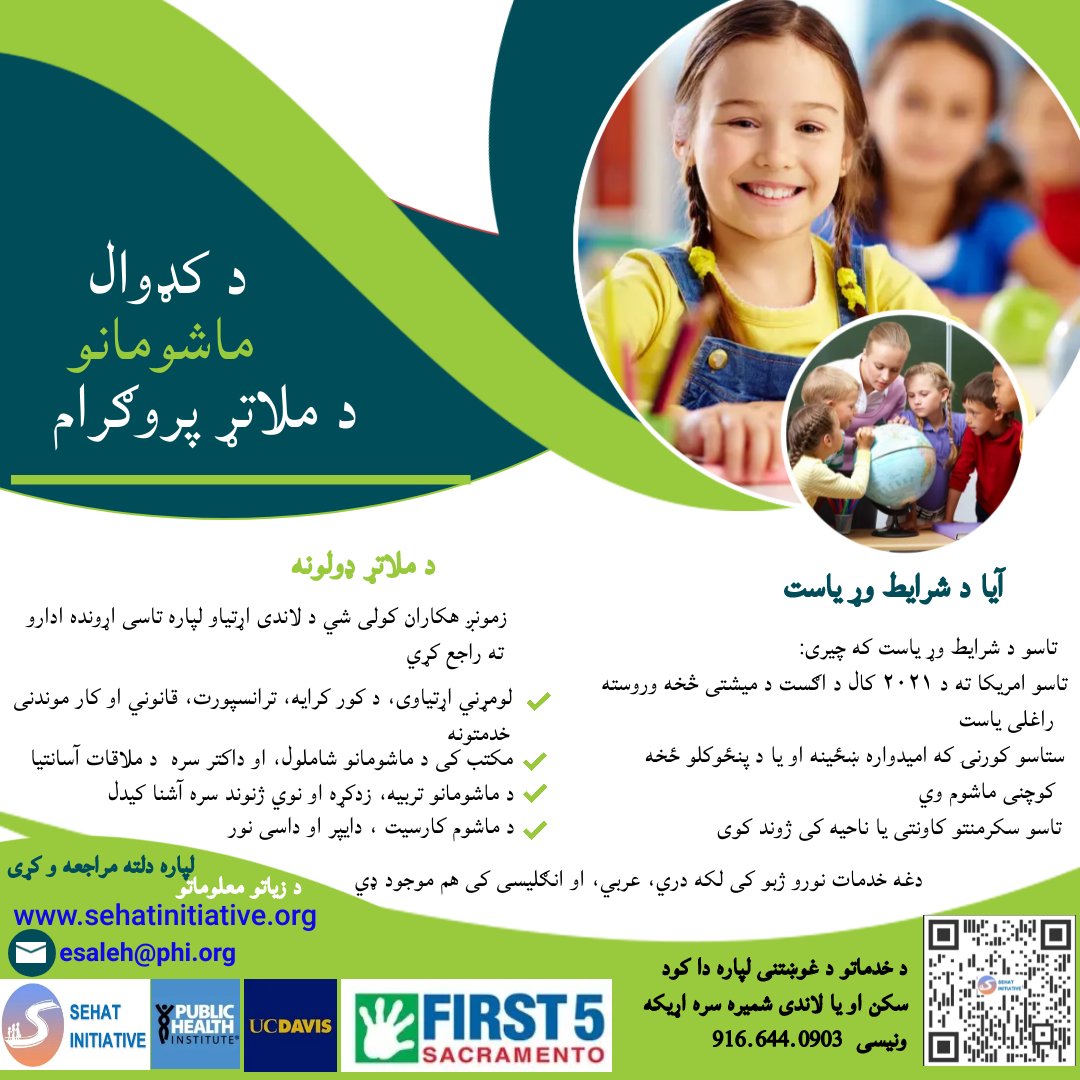Refugee Family Support (RFS) Program
Refugee Children’s Health
About 90% of a child's brain develops in the first five years, the fastest period of their brain development. During this critical and significant stage, research shows that the environment will impact children throughout their life. During the first five years, a child’s early experiences and relationships are critical as they grow physically, emotionally and socially. Children also make major developmental milestones in movement, behavior, cognitive and communication skills. A supportive, safe and encouraging environment is critical for children to meet these developmental milestones.
However, refugee children experience challenging family circumstances and intense physical and mental stress that can critically impact their development. Many refugee children and their families have been forcibly displaced fleeing conflict, violence and persecution. Many also experience loss of loved ones and loss of community. These circumstances also increase their vulnerability to abuse, neglect, violence, exploitation and trafficking. These can be experienced while they are in their country of origin, during the displacement process, or during the resettlement process here in the United States. Upon arrival into the United States, refugee families often lack economic resources, social networks, healthcare access and literacy, and knowledge of the host country’s language and culture.
Accessing and seeking healthcare for refugee children and their families can be challenging. Access and utilization can be impacted by factors such as language barriers, cultural barriers, stigma, lack of culturally competent care, lack of knowledge and trust in Western Healthcare, and fear of discrimination.
Addressing Traumatic Experience of Displacement in Early Childhood
Presented by Mohammad Sediq Hazratzai, MD, MPH
English
Pashto
Dari
Our Work
The PHI’s Sehat Initiative in partnership with UC Davis and funding from First 5 Sacramento have launched a new Refugee Family Support (RFS) program to meet the needs of refugee children in Sacramento County. Our support to refugee families includes but are not limited to:
General navigation services, including but not limited to: Assistance completing applications, paperwork, making appointments, referrals to other resources, and transportation assistance, among other activities that connect families to the services they need.
Language support in Arabic, Pashto, Farsi, and Dari
Basic needs
Housing vouchers (limited for emergency situations)
Health Education: Convene culturally and linguistically responsive workshops on various health topics
Mental health assessments
Mental health support
Research
This project is led by Dr.Esra Saleh MBBS, MPH, and supported by Dr.Sediq Hazratzai MD, MPH at PHI, Patrick Marius Koga MD, MPH, FRSPH at UC Davis, and Dominique Tzou research intern at PHI.




